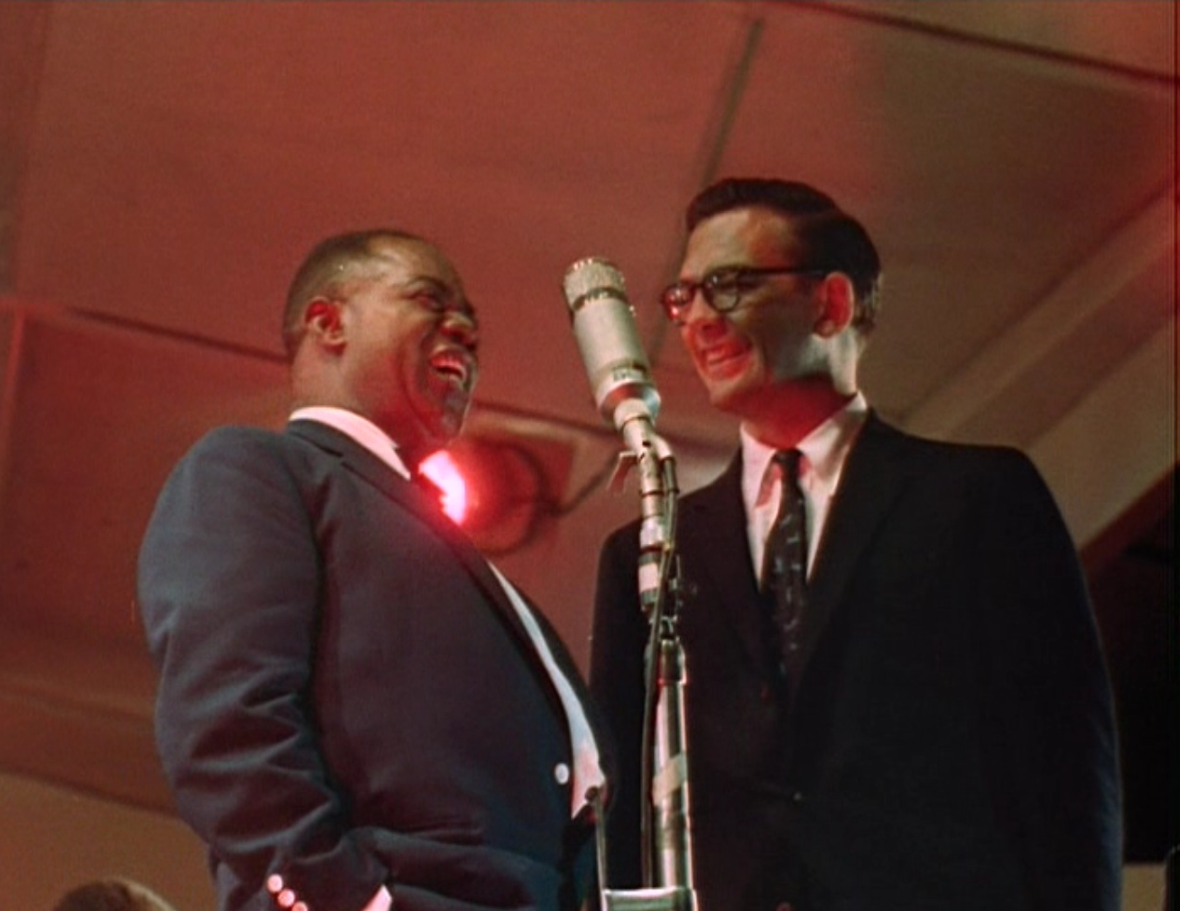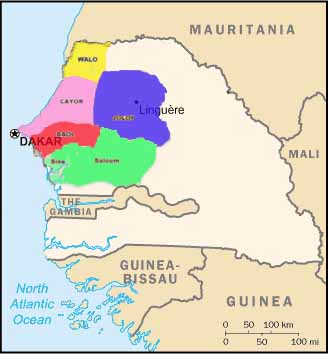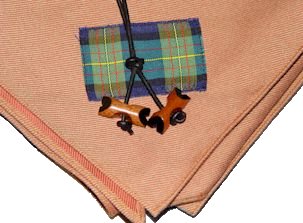|
Bai Konte
Alhaji Bai Konte (1920–1983) was a ''Griot, jali'' (praise singer) from Brikama, Gambia. His grandfather, Jali Ndaba Konteh, was a Ngoni (instrument), Konting player who originally brought his family to Brikama from the Kangaba, Kankaba region of Mali. Bai Konte's father, Burama Konte, was also a celebrated kora player and composed several important pieces in the repertoire. Burama Konte, composed the anthem of the 19th century Senegambian hero Mansumaneh Yundum, ''Yundum N'ko''. It was from that piece that the anthems of Sheriff Sidi Hydara and Nyansu Mbasse originated. Burama Konteh was a well-known Kora (instrument), kora player of his generation. Bai Konte was a regular on Radio Gambia and Radio Senegal's joint program called Chossani Senegambia (the history of Senegambia) in the 1970s. He and other griots such as Jali Nyama Suso and Alhaji Abdoulaye Samba (on xalam) used to play live music during the show. Bai Konteh had narrated many epics on that show including the epic o ... [...More Info...] [...Related Items...] OR: [Wikipedia] [Google] [Baidu] |
Mecca
Mecca, officially Makkah al-Mukarramah, is the capital of Mecca Province in the Hejaz region of western Saudi Arabia; it is the Holiest sites in Islam, holiest city in Islam. It is inland from Jeddah on the Red Sea, in a narrow valley above sea level. Its metropolitan population in 2022 was 2.4million, making it the List of cities in Saudi Arabia by population, third-most populated city in Saudi Arabia after Riyadh and Jeddah. Around 44.5% of the population are Saudis, Saudi citizens and around 55.5% are Muslim world, Muslim foreigners from other countries. Pilgrims more than triple the population number every year during the Pilgrimage#Islam, pilgrimage, observed in the twelfth Islamic calendar, Hijri month of . With over 10.8 million international visitors in 2023, Mecca was one of the ten List of cities by international visitors, most visited cities in the world. Mecca is generally considered "the fountainhead and cradle of Islam". Mecca is revered in Islam as the birthp ... [...More Info...] [...Related Items...] OR: [Wikipedia] [Google] [Baidu] |
Senegambia
The Senegambia (other names: Senegambia region or Senegambian zone,Barry, Boubacar, ''Senegambia and the Atlantic Slave Trade'', (Editors: David Anderson, Carolyn Brown; trans. Ayi Kwei Armah; contributors: David Anderson, American Council of Learned Societies, Carolyn Brown, University of Michigan. Digital Library Production Service, Christopher Clapham, Michael Gomez, Patrick Manning, David Robinson, Leonardo A. Villalon), Cambridge University Press (1998) p. 5,(Retrieved 15 March 2019) Senegàmbi in Wolof language, Wolof and Pulaar, Senegambi in Serer) is, in the narrow sense, a historical name for a geographical region in West Africa, named after the Senegal River in the north and the Gambia River in the south. However, there are also text sources which state that Senegambia is understood in a broader sense and equated with the term the Western region. This refers to the coastal areas between Senegal and Sierra Leone, where the inland border in the east was not further def ... [...More Info...] [...Related Items...] OR: [Wikipedia] [Google] [Baidu] |
Guinea
Guinea, officially the Republic of Guinea, is a coastal country in West Africa. It borders the Atlantic Ocean to the west, Guinea-Bissau to the northwest, Senegal to the north, Mali to the northeast, Côte d'Ivoire to the southeast, and Sierra Leone and Liberia to the south. It is sometimes referred to as Guinea-Conakry, after its capital Conakry, to distinguish it from other territories in the Guinea (region), eponymous region, such as Guinea-Bissau and Equatorial Guinea. Guinea has a population of 14 million and an area of . Formerly French Guinea, it achieved independence in 1958. Guinea has a history of military coup d'état, coups d'état.Nicholas Bariyo & Benoit FauconMilitary Faction Stages Coup in Mineral-Rich Guinea ''Wall Street Journal'' (5 September 2021).Krista LarsonEXPLAINER: Why is history repeating itself in Guinea's coup? Associated Press (7 September 2021).Danielle PaquettHere's what we know about the unfolding coup in Guinea ''Washington Post'' (6 Septembe ... [...More Info...] [...Related Items...] OR: [Wikipedia] [Google] [Baidu] |
Les Ballets Africains
Les Ballets Africains is the national dance company of Guinea and is based in Conakry. It is one of the first African national dance companies. It has toured extensively around the world. Although the French name might suggest the idea of European ballet to English speakers, the focus of the company is actually on promoting traditional African dance and culture. History The roots of ''Les Ballets Africains'' go back to Guinean poetry student, dancer, choreographer, and musician Fodéba Keïta. In France, in 1948, he founded a poetry group for Africans, which gradually evolved into the drumming, dancing, and storytelling African Theater Ballet of Fodeba Keita. The company toured Europe from 1951 to 1955 and the United States in 1953. It became Les Ballets Africains in 1952 in Paris. Some initial strong opposition came from various tribes, who were offended that others were dancing their dances and singing their songs, but that objection was eventually overcome. In the 1950s, amon ... [...More Info...] [...Related Items...] OR: [Wikipedia] [Google] [Baidu] |
Newport Jazz Festival
The Newport Jazz Festival is an annual American multi-day jazz music festival held every summer in Newport, Rhode Island. Elaine Lorillard established the festival in 1954, and she and husband Louis Lorillard financed it for many years. They hired George Wein to organize the first festival and bring jazz to Rhode Island. Most of the early festivals were broadcast on Voice of America radio, and many performances were recorded and released as albums. In 1972, the Newport Jazz Festival was moved to New York City. In 1981, it became a two-site festival when it was returned to Newport while continuing in New York. From 1984 to 2008, the festival was known as the JVC Jazz Festival; in the economic downturn of 2009, JVC ceased its support of the festival and was replaced by CareFusion. The festival is hosted in Newport at Fort Adams State Park. It is often held in the same month as the Newport Folk Festival. Festival's establishment at Newport 1950s In 1954, the first Newport Jazz Fes ... [...More Info...] [...Related Items...] OR: [Wikipedia] [Google] [Baidu] |
United States
The United States of America (USA), also known as the United States (U.S.) or America, is a country primarily located in North America. It is a federal republic of 50 U.S. state, states and a federal capital district, Washington, D.C. The 48 contiguous states border Canada to the north and Mexico to the south, with the semi-exclave of Alaska in the northwest and the archipelago of Hawaii in the Pacific Ocean. The United States asserts sovereignty over five Territories of the United States, major island territories and United States Minor Outlying Islands, various uninhabited islands in Oceania and the Caribbean. It is a megadiverse country, with the world's List of countries and dependencies by area, third-largest land area and List of countries and dependencies by population, third-largest population, exceeding 340 million. Its three Metropolitan statistical areas by population, largest metropolitan areas are New York metropolitan area, New York, Greater Los Angeles, Los Angel ... [...More Info...] [...Related Items...] OR: [Wikipedia] [Google] [Baidu] |
Mandinka Language
The Mandinka language (; Ajami: ), or Mandingo, is a Mande language spoken by the Mandinka people of northern Guinea-Bissau, the Casamance region of Senegal, and The Gambia where it is one of the principal languages. Mandinka belongs to the Manding branch of Mande and is similar to Bambara and Maninka/Malinké but with only 5 instead of 7 vowels, due to lacking the ATR distinction. The varieties spoken in Urban Gambia and Senegal borders on a pitch accent due to its proximity with non-tonal neighboring languages like Wolof. Phonology Mandinka is here represented by the variety spoken in Casamance. There is little dialectical diversity. Tone Mandinka has two tones, high and low. Unmodified nouns are either high tone on all syllables or low tone on all syllables. The definite suffix ''-o'' takes a low tone on high-tone nouns and a falling tone on low-tone nouns. It also assimilates any preceding short vowel, resulting in a long /oo/ with either low or falling tone ... [...More Info...] [...Related Items...] OR: [Wikipedia] [Google] [Baidu] |
Wolof Language
Wolof ( ; , ) is a Niger–Congo language spoken by the Wolof people in much of the West African subregion of Senegambia that is split between the countries of Senegal, The Gambia and Mauritania. Like the neighbouring languages Serer and Fula, it belongs to the Senegambian branch of the Niger–Congo language family. Unlike most other languages of its family, Wolof is not a tonal language. Wolof is the most widely spoken language in Senegal, spoken natively by the Wolof people (40% of the population) but also by most other Senegalese as a second language. Wolof dialects vary geographically and between rural and urban areas. The principal dialect of Dakar, for instance, is an urban mixture of Wolof, French, and Arabic. ''Wolof'' is the standard spelling and may also refer to the Wolof ethnicity or culture. Variants include the older French , , or , which now typically refers either to the Jolof Empire or to jollof rice, a common West African rice dish. Now-archaic forms incl ... [...More Info...] [...Related Items...] OR: [Wikipedia] [Google] [Baidu] |
Gambia Radio & Television Service
The Gambia Radio & Television Service is the national broadcaster of the West African state of the Gambia. Gambia Radio & Television Service currently broadcasts in English and native local languages. History The history of GRTS stems from the merger of the older and more established Radio Gambia and the rather recent Television Channel. Radio Gambia was the first media broadcaster in the Gambia, opened in 1962. Its historical base is Bakau (a town in the Gambia). In December 1995, GRTS was commissioned by the Gambian government which began test transmissions under the Gambia Telecommunications Company (Gamtel), using a 5KW transmitter in Abuko. Then, it adopted its own television channel. The Station operates as a public service station based on the tradition of Radio Gambia. Up until broadcasts started, viewers relied on Senegalese television, where 75% of its programming was in English, yet few people understood the language and the news attracted the viewers more. Thanks ... [...More Info...] [...Related Items...] OR: [Wikipedia] [Google] [Baidu] |
Alhaji Alieu Ebrima Cham Joof
Alieu Ebrima Cham Joof (22 October 1924 – 2 April 2011) commonly known as Cham Joof or Alhaji Cham Joof, (pen name: Alh. A.E. Cham Joof) was a Gambian historian, politician, author, trade unionist, broadcaster, radio programme director, scout master, Pan-Africanist, lecturer, columnist, activist and an African nationalist who advocated for the Gambia's independence during the colonial era.Joof, Alh. A. E. Cham. ''Gambia, the land of our heritage'', p. 2. Early life Cham Joof was born on 22 October 1924 at 7 Griffith Street (Half-Die) in ''Bathurst'' now Banjul, the capital of the Gambia. He came from a Serer and Wolof background. He was the third child and the eldest son of Ebrima Joof (1887–1949) and Aji Anna Samba (1896 – 9 April 1977). On his father's side (the Joof family), he was a descendant of the Joof Dynasty of Sine and Saloum, and the Njie Dynasty of Jolof. On his mother's side, he was the great grand-nephew of Tafsir Sa Lolly Jabou Samba — a 19th-centu ... [...More Info...] [...Related Items...] OR: [Wikipedia] [Google] [Baidu] |
Ibra Faye
The Interim Biogeographic Regionalisation for Australia (IBRA) is a biogeographic regionalisation of Australia developed by the Australian government's Department of Sustainability, Environment, Water, Population, and Communities. It was developed for use as a planning tool, for example for the establishment of a national reserve system. The first version of IBRA was developed in 1993–94 and published in 1995. Within the broadest scale, Australia is a major part of the Australasia biogeographic realm, as developed by the World Wide Fund for Nature. Based on this system, the world is also split into 14 terrestrial habitats, also called biomes, of which eight are shared by Australia. The Australian land mass is divided into 89 bioregions and 419 subregions. Each region is a land area made up of a group of interacting ecosystems that are repeated in similar form across the landscape. IBRA is updated periodically based on new data, mapping improvements, and review of the existi ... [...More Info...] [...Related Items...] OR: [Wikipedia] [Google] [Baidu] |
Xalam
Xalam (in Serer, khalam in Wolof, and Mɔɣlo in Dagbanli) is a traditional lute from West Africa with 1 to 5 strings. The xalam is commonly played in Mali, Gambia, Senegal, Niger, Northern Nigeria, Northern Ghana, Burkina Faso, Mauritania Mauritania, officially the Islamic Republic of Mauritania, is a sovereign country in Maghreb, Northwest Africa. It is bordered by the Atlantic Ocean to the west, Western Sahara to Mauritania–Western Sahara border, the north and northwest, ..., and Western Sahara. The xalam and its variants are known by various names in other languages, including bappe, diassare, hoddu ( Pulaar), koliko ( Gurunsi), kologo ( Frafra), komsa, kontigi, gurmi, garaya ( Hausa), koni, konting ( Mandinka), molo ( Songhay/ Zarma), ndere, ngoni ( Bambara), and tidinit ( Hassaniyya and Berber). In Wolof, a person who plays the xalam is called a ''xalamkat'' (a word composed of the verbal form of xalam, meaning "to play the xalam", and the agentive s ... [...More Info...] [...Related Items...] OR: [Wikipedia] [Google] [Baidu] |






